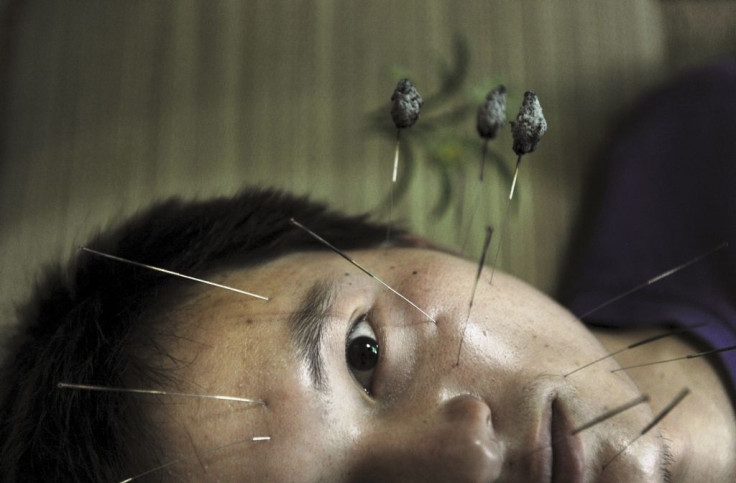Can Acupuncture Fight Incipient Dementia? Researchers Say Needle Therapy Combined With Medication Can Be Beneficial

As scientists debate the benefits of acupuncture, a new research suggests that the ancient Chinese therapy may help fight memory loss in people dealing with incipient dementia. The study, which came out Thursday, said the therapy would work better if combined with drug treatment.
Dementia is a broad term that comprises various symptoms associated with a decline in memory or other cognitive skills that severely affect a person’s ability to perform daily activities. The most common form of dementia is Alzheimer’s disease, which currently affects over five million Americans.
Although health experts are of the opinion that acupuncture is not a reliable option to slow down dementia, others maintain that it 3,000-year-old needle therapy can be used as much as possible when there are no effective treatment available.
In the latest study published in BMJ journal Acupuncture in Medicine, researchers from the Wuhan University in China examined five previous studies that involved 568 people with mild cognitive impairment, a precursor to dementia. The number of participants in each trial differed from 26 to 94. While, four trials received acupuncture treatment for three to five times a week in a span of two months, one trial received the therapy for three months.
Meta-analysis showed that those who received acupuncture therapy had better results compared to those who received nimodopine, a common dementia medication. The acupuncture patients scored better on two tests related to memory and dementia — Folstein test, a 30-point questionnaire used to measure mental impairment, and picture recognition.
Furthermore, researchers also found that combination of acupuncture and nimodopine improved scores on the tests.
Even though, the study found acupuncture beneficial for incipient dementia, the study authors cautioned that additional and better quality research is required to determine whether it can work to fight memory loss.
“The researchers point to several caveats, including the high or unclear risk of bias in the trials, the randomization process, and the trial design which didn't take account of potential placebo effects. Most of the trials were also carried out in China where patients may prefer acupuncture to medical treatment,” the researchers noted.
“Despite the promising findings, further large rigorous clinical trials in Western settings are needed before any firm conclusions can be drawn about the effectiveness and safety of acupuncture for treating MCI,” according to the researchers.
© Copyright IBTimes 2024. All rights reserved.





















